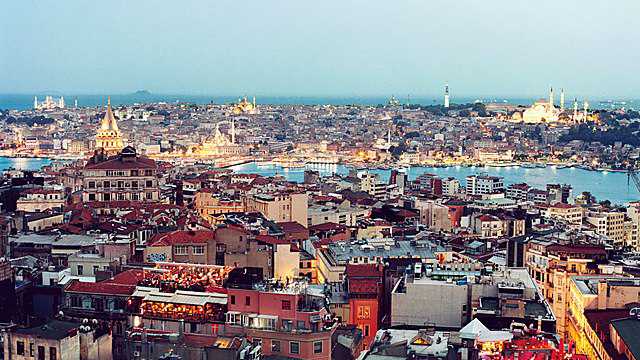The status of the Greek minority and patriarchate determined by the Peace Treaty signed in Lausanne on July 24, 1923 after the War of Liberation, the claims of ecumenical patriarchate, the reopening of Heybeliada Seminary, the returning of the registered foundation assets constitute a problem which has kept our country busy for a long time.
Due to the fact that the patriarchate is not subject to a special arrangement, it has to be considered within the scope of the religious institutions from Article 35 to 45 entitled the safeguarding the minorities. The debate carried out on the authorities of the Patriarchate during the process of Lausanne negotiations and the reconciliation reached as a result of it draw the legal situation of the of the institution.
During the Lausanne negotiations, the sides agreed that a Patriarchate which lacked political and administrative authorities and which will be granted no privileges and concessions but religious authorities may remain in Istanbul. Also with the collapse of the Ottoman Empire and the establishment of the new Republic of Turkey in which everybody has equal rights even if they are minorities, all the political and administrative privileges of the Fener Greek Patriarchate have been removed.
During the Lausanne talks, objections were raised against the taking away the Patriarchate outside of Turkey and the Patriarch to be elected for Patriarchate is required to be the citizen of the Republic of Turkey and his position must be archbishopric within the borders of Turkey. The situation was so in both the Ottoman Empire and the Byzantine Empire.
The archbishops who are outside the borders of the Republic of Turkey can’t become candidates in the election of the patriarch even if they are religiously subordinate to the Fener Greek Patriarchate. This situation is an evident indicator of the fact that the claim of ecumenical patriarchate isn’t recognized by Turkey.
Greece which could not accept the fact of Lausanne Treaty regarding the problem of the Fener Greek Patriarchate and sought to turn it into an international problem again applied to the League of Nations[1]. However the League of Nations issued the decision that the subject had to be solved by the two countries. This situation indicates once again that the Fener Greek Patriarchate is an institution which is entirely subordinate to the internal law.
This decision of the League of Nations is the one which acts as a base and which was taken within the framework of the international law. It is a decision which also applies to the disputes likely to occur in the future. When it is said that “Yesterday it was like that, today it is like this,” all the peace agreements which concern international law, terminate the wars and determine the frontiers and all the multilateral arrangements and decisions regarding them will have been upset and opened to debate. One wonders whether Greece would consent to the fact that the decisions regarding the Bulgarian frontier and Corfu Island are not taken any notice – and also in opposition to its own interests – and opened to debate again.
Following this decision, Greece and the Fener Greek Patriarchate sought to realize the claim of the ecumenical Patriarchate which is not subject to any international treaties including Lausanne by taking no notice of the legal arrangements, creating actual situations and through fait accompli.
As is known, the most significant indicator of the ecumenical patriarch is the authority of gathering general council. Fener has neither any authority to gather general council nor any power vis-à-vis the Orthodox communities and churches which are not subordinate to it.
Sibel Keskin
[1] The League of Nations was established after World War I and was active between 1920 and 1946. It became a final resolution and decision body for many international problems ranging from the problem of Manchuria, determination of the frontier between Greece and Bulgaria, French occupation of Ruhr region to Italian occupation of Corfu Island. Subsequently, it was replaced by the United Nations.


Leave a Reply